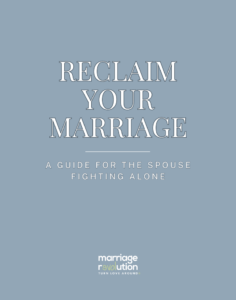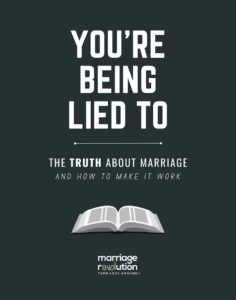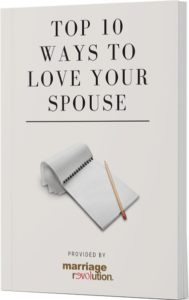I’d be willing to bet you’ve experienced some level of anxiety over the past several weeks. I know I have.
I don’t generally struggle with anxiety, but there have been a handful of times recently where the uncertainty of the future has led me down a path of a variety of “what if” questions…
-
- What if I get sick?
- What if one of my family members get sick?
- What if someone I love dies?
- What if I die?
- What if we don’t have enough groceries?
- What if I can’t pay my bills?
- What if I can’t get my hands on enough toilet paper?!
I’m not trying to stir up your anxiety with these questions, but rather trying to say, “I get it. I’ve been experiencing the same thing you have.” (and, I get paid to help people work through this stuff!!)
You’re not alone!!
Let’s camp there a second. Y o u ‘ r e n o t a l o n e.
Why is that important? The oxygen anxiety lives and breathes on is isolation and aloneness. One thought leads to another. Then another. Left to yourself, one thought turns into a blizzard of thoughts with 60 mph winds. You can’t see anything other than your “storm of thoughts.”
I’ve heard it said that the most influential person in your life is you. If that’s true, you have to be careful what you say to yourself! If you’re the only one speaking in to your “what if” questions, your thoughts and conclusions can become pretty messy and downright destructive…even leading you to a place of fear and anxiety.
I heard Michael Brody-Waite say recently, “99% of the worst things that have happened to me have only happened in my mind.” What is your percentage and how have those pessimistic / worrisome thoughts fueled your anxiety?
One of the questions anxiety lives on is, “What if?” Your roller coaster of answers to that question can quickly turn into fear, then panic, followed by a desire / willingness to do almost anything to make the thoughts stop or go away.
To make matters even worse, these attempts at making the thoughts stop are often isolating in and of themselves (binge watching a show on Netflix, excessive sleep, alcohol, drugs, addictive behavior, etc….). That snow storm just got even worse. But, there is a way out…
Phrase #1 – “I am _________”
In this season of uncertainty, I believe it is normal and even wise to be asking the question, “What if”. But, if we stop there it can lead to some pretty paralyzing and unhealthy emotions and behavior. A healthy response to anxiety goes a little farther. It digs a little deeper and says, “I am…”
What are you feeling in response to the potential answers (or lack of answers) to, “What if?”
-
- I am scared.
- I am worried.
- I am angry.
- I am fearful.
- I am sad.
The first step to responding to anxiety well is to finish the short sentence, “I am __________”
Be descriptive. Be complete. Be specific. Don’t be shy to admit how you’re feeling in response to this season. Name it. I’ve heard it said, “Our nameless fears are the ones that can harm us the most.”
Phrase “1.5”
Although this is a step in the right direction of dealing with anxiety, stopping here can also lead to an equally intense snowstorm. We have to go yet a step further.
Remember, the oxygen of anxiety is isolation. To cut off the air supply, you need to share your newly found clarity of emotion with someone. I want to suggest you share your “I am” statement with the great “I Am” (Exodus 3:14).
Yes, God will use people to comfort you, care for you, and provide clarity for you, but if you ignore the God of all comfort, care, and clarity from your anxiety, you’ll be ignoring the ultimate source of help available to you (Philippians 4:19).
Tell God how you’re feeling. “God, I’m scared. Actually, I’m terrified. I’m paralyzed with the possibility of _________. What will I do? What should I do?”
When was the last time you prayed like that? Not in your head, but out loud. When was the last time you really cried out to God and shared your inner most thoughts and feelings?
Yes, God already knows your thoughts. He already knows your emotions. They aren’t a surprise to him whatsoever. He desires to hear from you. He longs to hear your voice. He doesn’t need you to tell him how you’re feeling for him. He needs you to tell Him for you.
When we express our emotions out loud to God in prayer, we are reminding ourselves, actually declaring to ourselves, “I AM NOT ALONE!” Not only does anxiety live and breathe in isolation, it also lives and breathes in the natural, the horizontal, in the absence of a realization that God is present and in control in the most intense moments of your anxiety.
Your anxiety tends to forget God. The best way to remember that God IS present in your anxiety is to develop a habit of telling Him your thoughts before anyone else. Go to God first and say, “I am _________”
Phrase #2 – “You are ___________”
When Moses saw a burning bush in the middle of the desert he had to go see what was going on. As he was approaching the bush, God called his name and proceeded to give Moses the seemingly impossible assignment of freeing all of God’s people from Egypt.
Moses had some concerns. He probably even had some fear and anxiety of sorts. Moses started in with some, “What if” questions to God. What if I’m not the right guy? What if the Israelites question me? What if they don’t believe me? What if I don’t have the right words? What if I stumble over my words?
Early on in this dialogue, God lays down the trump card of all trump cards in response to Moses’s fear and insecurities in Exodus 3:14. God tells Moses:
“I AM WHO I AM”
The statement is a little confusing at the surface but so profound and personal at its core. It means that God is ____________. You fill in the blank.
This isn’t your opportunity to define who God is. God has already revealed himself perfectly and completely through the Bible. But this is your opportunity to learn, remember, and lean in to who God is specifically in response to what you’re going through.
God is your ever present help in your time of anxiety, but he desires for you to know the help he provides more specifically.
Crying out to God for help is good. Declaring who God is and asking him for that specific help is better. As you grow in your understanding of who God is and pray more specifically along these lines, your appreciation for who God is will increase, your trust in him will become stronger, and you will become like, …”a tree planted by streams of water, its leaves are always green. It has no worries in a year of drought and never fails to bear fruit.” Jeremiah 17:8
Change your prayers from, “God please help me…” to, “God I am feeling anxious, yet I know YOU ARE in complete control and YOU ARE the God of Peace.”
In your season of anxiety, God is inviting you to know him more intimately. He is inviting you to say “God, You are __________ in response to my anxiety.”
One of the ways to do this is to study, think about, and pray through the different names of God. Here are just a few:
Anxious? God is your Peace – Jehovah Shalom
Alone? God is with you – Jehovah Shammah
Fearful? God is your shield – Jehovah Magen
Out of control? God is in complete control – El Shaddai
In need? God is your provider – Jehovah Jireh
Weak? God is your strength – Jehovah Uzi
Phrase #3 – “I will _________”
The first 2 phrases will help you have more clarity of your emotions, a deeper understanding of who God is, and a growing sense of peace. But, God doesn’t give peace only for you to feel better. He gives peace so you can be a conduit of peace and love to the people around you.
A lack of peace can be paralyzing. It can stop you dead in your tracks. And as we’ve said, anxiety isolates. When you’re isolated, you’re castrated from the community you’re called to love. Anxiety doesn’t only rob you of peace, it robs the people around you of your love for them. And loving the people around you is the point of your existence (Galatians 5:6, Matthew 22:34-40).
That’s why this last step is so important. As God grows your faith in him, he wants you to express it. I’ve heard it said that faith isn’t faith unless its accompanied by a step.
What step is God asking you to take?
I will…
-
- Start getting up earlier.
- Stop staying up so late binge-watching Netflix.
- Start exercising.
- Stop over-indulging in food, alcohol, drugs, etc.
- Start reaching out to friends / returning phone calls and texts.
- Stop acting like everything is ok to everyone.
- Start sharing with my spouse / trusted friends what I’m going through.
- Stop getting right into my “to-do” list right when I wake up.
- Start spending 15 minutes in Bible reading and prayer instead.
- Stop _________
- Start _________
Ask God what your “I will” is. The peace that God has available for you is a gift, but it’s not a gift for you to hold on to. God wants you to share it with others in some way shape or form.
I am…
You are…
I will…
Hang these phrases on your fridge. Put them as a screensaver on your phone or computer. Write them in the front cover of your Bible. Try these phrases on the next time you’re going through a moment of anxiety. As you do, I am praying Philippians 4:6-7 for you:
“Don’t fret or worry. Instead of worrying, pray. Let petitions and praises shape your worries into prayers, letting God know your concerns. Before you know it, a sense of God’s wholeness, everything coming together for good, will come and settle you down. It’s wonderful what happens when Christ displaces worry at the center of your life.”
One last thing…
These are principles to live by in response to anxiety, not a prescription to magically fix your feelings. I believe God wants you to know more peace is available to you in the midst of this season. But keep in mind where you and I are living. We will never experience perfect peace this side of Heaven. Since we are still living in the world, there will be pain, there will be suffering, and we will continue to have anxious thoughts. But as we grow in our understanding of ourselves, of God, and how to live in relationship with him, our intimacy with God, our moments of peace, and love for others should continue to grow.
As we experience the various types of suffering that is guaranteed this side of heaven, our longing for heaven should grow. Suffering in the silo of earth is hard because it will never be completely over, but suffering with an eternal perspective knowing our various trials will eventually come to an end is absolutely endurable.
“Therefore we do not lose heart. Though outwardly we are wasting away, yet inwardly we are being renewed day by day. For our light and momentary troubles are achieving for us an eternal glory that far outweighs them all. So we fix our eyes not on what is seen, but on what is unseen, since what is seen is temporary, but what is unseen is eternal.”
2 Corinthians 4:16-17

Hans co-founded Marriage Revolution with his wife, Star, in 2010. He counsels couples in The Woodlands, TX, speaks at marriage conferences around the country, and provides leadership and direction to Marriage Revolution.









